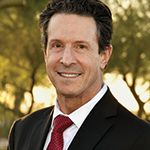
VectorMine / shutterstock.com
Despite revolutionary advances in pharmacologic treatments for many rheumatic conditions in recent years, some patients still fail to reach a desired state of living with their disease, notes R. Swamy Venuturupalli, MD, FACR, a clinician and researcher in rheumatology, as well as the founder and director of Attune Health, a Beverly Hills, Calif.-based company that researches treatment for autoimmune and inflammatory diseases.
“As a field, we rely on advances in immune modifiers and biologics to influence our patients’ immune systems,” he says. But a significant proportion of rheumatology patients won’t achieve remission. That drives them to explore over-the-counter products, sleep aids, yoga, tai chi, Pilates, acupuncture and a variety of dietary approaches.
And that’s just scratching the surface, Dr. Venuturupalli says. “Many patients come to us with an interest in non-pharmaceutical, alternative or complementary approaches to managing their disease, some tested and some not.” Or, if they don’t think the rheumatologist will be open to discussing it, they may not even bring it up to the doctor. A lot of non-pharmaceutical approaches come under the broad category of wellness management. And wellness is a booming, patient-driven movement that includes lifestyle changes that could result in alleviating discomfort.
Enter the Rheumatologist

Dr. Venuturupalli
How do rheumatologists fit into this picture? “I often find patients questioning me and wanting my opinion on this approach or that. I have had to educate myself so I can answer their questions more intelligently, beyond the customary response that because it hasn’t been studied enough, we can’t say [anything about it]. Being a trusted source of information for my patients, somebody trained to test medical benefits in an impartial way, I need to give my patients a better answer than that,” Dr. Venuturupalli says.
For Nicole Cotter, MD, a rheumatologist who recently moved her integrative medicine consultation practice from Shreveport, La., to Steamboat Springs, Colo., wellness is the best umbrella term for a variety of approaches to self-management and self-care, including diet, exercise and movement, stress reduction and mind-body medicine—which involves harnessing the mind to control stress and influence overall health and wellness.
Dr. Cotter was conventionally trained as a rheumatologist. She pursued a fellowship at the Andrew Weil Center for Integrative Medicine, University of Arizona, Tucson, after her patients asked such questions as: What should a person with arthritis be eating? What do you think about the purported benefits of turmeric?
“From the perspective of our training, we really have no [answers]. We usually say there are no data. But is that true?” she asks.
‘If we are the doctors of inflammatory conditions, it is part of our job [to consider non-pharmaceutical wellness approaches], because lifestyle affects inflammation.’ —Dr. Cotter

Dr. Cotter
“When we talk about integrative medicine, we are just describing good medicine,” says Dr. Cotter. “We have separated the body from the mind, but they are connected.”
When rheumatologists say these kinds of wellness approaches aren’t part of their jobs, it may come from lack of knowledge about non-pharmaceutical approaches or a lack of time. “But if we are the doctors of inflammatory conditions, it is part of our job, because lifestyle affects inflammation,” says Dr. Cotter.
A Time for Wellness
Leonard Calabrese, DO, believes the time has come for incorporating wellness strategies routinely into rheumatology practices and to stop treating them as alternatives to conventional medicine.
“I believe there has been an underemphasis and a lack of resources invested in encouraging wellness behaviors for patients with rheumatologic conditions,” says Dr. Calabrese, a professor of medicine at the Cleveland Clinic Lerner College of Medicine of Case Western Reserve University. He also holds the R.J. Fasenmyer Chair of Clinical Immunology and the Theodore F. Classen, DO, Chair of Osteopathic Research and Education, and serves as vice chair of the Department of Rheumatic and Immunologic Diseases at the Cleveland Clinic.

Dr. Calabrese
In the past 20 years, incredible progress has been made in the development of targeted therapies for many rheumatic conditions, according to Dr. Calabrese. And the science of well-being has simultaneously advanced. Patients with rheumatic diseases of all sorts have their own goals, which don’t always overlap with what the rheumatologist offers. “We focus on joint damage, skin clearance or inflammatory markers, but our patients are more interested in addressing their pain, fatigue and generalized well-being—in other words, their lived condition.”
Wellness strategies address the physical, mental and spiritual dimensions of the human being, he says. “I believe in taking care of the whole patient and looking for ways to care for them that will be the most effective. When I talk about this with rheumatologists, often they are astounded to discover how much data there actually are to support various wellness approaches.”
What, then, is the roadblock keeping rheumatologists from going all in with wellness strategies for their patients? Most rheumatologists aren’t yet sold on wellness science, Dr. Calabrese says. There is a gap in knowledge. Even when they are familiar with the benefits of a healthy diet or sleep hygiene, they lack confidence in their own ability to engage in such conversations with their patients.
‘When we talk about integrative medicine, we are just describing good medicine,’ says Dr. Cotter.
He is involved with initiatives to compile the data and make it more accessible for both patients and providers. The Cleveland Clinic is building a comprehensive online program of wellness behavioral training, called Immune Strength. The program is now in beta testing for usability and acceptance, starting with patients who have psoriasis, psoriatic arthritis and spondyloarthritis before moving on to other immune-modulated diseases.
The goal is to create an evidence-based online program available to all, one that complements aggressive, targeted therapy of immunologic diseases, Dr. Calabrese says, adding that the immune-strengthening message seems to be resonating with a wide audience in the COVID-19 era, not just those with active immune diseases.
What Wellness Includes
What does wellness-oriented self-management encompass for rheumatology patients and for their physicians?
Diet
Many foods are known to be inflammatory and may contribute to the development of inflammation.
A balanced Mediterranean diet, emphasizing the traditional flavors and cooking methods of southern European countries bordering the Mediterranean Sea, has been shown to be heart healthy. This diet includes daily consumption of vegetables, fruits, whole grains and healthy fats, such as olive oil; weekly intake of fish, poultry, beans and eggs; moderate portions of dairy products; and limited intake of red meat.

Dr. Tesser
“Patients ask me specifically what to eat. I tend to dissuade them from supplements in general,” says John R.P. Tesser, MD, a rheumatologist with Arizona Arthritis and Rheumatology Associates, Phoenix, and adjunct professor at the Arizona College of Osteopathic Medicine. “I try to keep it simple. I say there’s good research showing the Mediterranean diet, with its focus on fish, poultry, vegetables, fruit, nuts and olive oil, can be anti-inflammatory.”
Movement & exercise
Any kind of physical movement, as tolerated, will help patients with rheumatic conditions, and the benefits of simple exercise can’t be overstated, Dr. Tesser says. “I say exercise is a key to life. If you move, you’ll live longer and better. When we think of exercise, the first thing that often comes to mind is running. But walking is excellent, easy and free.”
Stress reduction, including sleep hygiene
Stress is an important contributor to inflammatory conditions—and moderating it can help patients manage pain and other symptoms. A related issue is sleep hygiene (i.e., sticking to a sleep schedule, creating a restful environment, including physical activity in your daily schedule and limiting naps), which is critical to overall health.
Focusing on these three areas—diet, movement and stress—will give the most bang for the buck, and should not be controversial for rheumatologists, Dr. Cotter says. Mindfulness meditation and mindfulness-based stress reduction (MBSR) are also emerging as important strategies in disease and wellness management. Mindfulness, described as non-judgmental, present moment awareness, is a learned skill that can be taught and practiced.1
The rheumatology clinic at Johns Hopkins Medicine, Baltimore, has launched a mindfulness initiative in collaboration with psychiatry and behavioral sciences. The clinic is offering classes by a certified MBSR psychologist and a smartphone app-based program to enhance rheumatology patients’ quality of life.

Dr. DiRenzo
“We have found both to be very beneficial, especially for the increased prevalence of anxiety and depression found with RA [rheumatoid arthritis], as well as for fatigue and other aspects of quality of life,” principal investigator and rheumatologist Dana DiRenzo, MD, MHS, explains in an email.
Her team’s review of mindfulness-based interventions in RA, focusing on five published trials and one post-hoc analysis of mindfulness interventions involving 399 patients, found that although few studies have been conducted to evaluate the effects of MBSR in patients with RA, improvements in rates of emotional distress were noted for those who completed the MBSR course.2
The research at Johns Hopkins on the mental health benefits from MBSR in people who have RA plus anxiety and/or depression have not yet been published, but preliminary findings suggest it may be a useful strategy to improve psychological distress in these patients.
“We have generally found that through promoting this study in our clinic, patients seem more comfortable asking not only about mental health and stress reduction, but about other aspects of wellness. That includes diet and exercise,” Dr. DiRenzo says.
How To …
With a topic as broad as wellness, and with so much information of greater or lesser validity accessible on the internet, it’s important to break the topic down for patients, says Dr. Venuturupalli. “If I have direct knowledge about a particular treatment from other patients, I use that in my decision making regarding whether to share with other patients.” But he also tries to affirm when patients take charge of their own lives, while sharing what science has to offer.
“There is no secret sauce; the information is out there,” Dr. Calabrese says. “We know what moderate exercise can do for our patients. You’ve got to work at it and get passionate about it.”
Dr. Calabrese recommends rheumatologists develop a working relationship with a practitioner of integrative medicine or a wellness coach. There’s also a role for advanced practitioners, occupational or physical therapists and others on the rheumatology team to get additional training in wellness strategies and spend more time on these issues with patients.
Dr. Venuturupalli’s practice engages a nutritionist to explore dietary issues with its patients.
“Rheumatologists want to present an evidence-based approach, but I feel strongly that we can’t just wait for all the evidence to arrive. We can use a common sense approach and try to direct [patients] to resources that are validated,” says Dr. Venuturupalli. “When a patient brings studies to me, it fuels my own curiosity and sparks my academic interest.”
Larry Beresford is a medical journalist in Oakland, Calif.
Wellness Resources
- Simple Tasks
- RheumTV, Johns Hopkins Rheumatology: RheumTV is a collection of video resources covering patient education, research updates and general information related to the Division of Rheumatology, including a popular series on yoga.
- Health Essentials, Cleveland Clinic. Video training on immune-system maintenance.
- Health & Wellness, Arthritis Foundation.
References
- Young LA. Mindfulness meditation: A primer for rheumatologists. Rheum Dis Clin North Am. 2011 Feb;37(1):63–75.
- DiRenzo D, Crespo-Bosque M, Gould N, et al. Systematic review and meta-analysis: mindfulness-based interventions for rheumatoid arthritis. Curr Rheumatol Rep. 2018 Oct 18;20(12):75.



